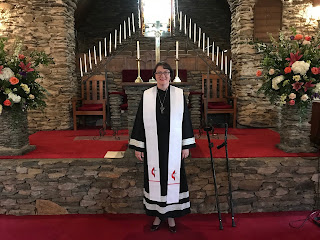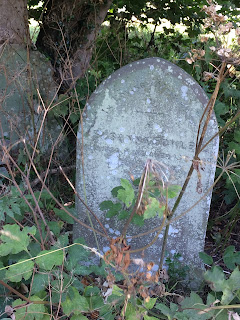Charles Wesley, most prolific hymn-writer in Christian history
During the season of Advent and into the Christmas season, people sing or hear many beloved hymns that form the backbone of their celebrations during this time of year. But for every carol or song that has become part of the familiar soundscape of the season, there are many others, like this jewel, that are all but forgotten by many of us.
Charles Wesley was an incredibly gifted man. Writing poetry seems to have come to him almost as easily as breathing, and he was also a compelling preacher whose sermons brought the gospel to large numbers of people who felt themselves outcast and forgotten by the established Church.
Not all of his thousands of hymns were worthy of a gold star, and even the ones that most clearly expressed his theological fervor weren't always set to music for congregational singing. Ever critical, big brother John wielded his editing pen lavishly if he felt a line was theologically questionable or if the verse itself was what he called "namby-pambical."
This devotional poem may not be one we often sing, especially in the US, but its words are certainly worthy of meditative reading and study. Its subject is the Incarnation, that most incomprehensible of doctrines, that God the infinite chose to shrink to our size, taking on the helplessness of a human child in order to bring us back to God and perfect us in love. When you hear some of the vapid lyrics of many of the contemporary "Christmas songs" of our day, you may well reflect that they have a long way to go before they can match the depth of insight and wonder, let alone the pure poetry of these words:
Let earth and heaven combine,
Angels and men agree,
To praise in songs Divine
The' incarnate Deity,
Our God contracted to a span,
Incomprehensibly made man.
He laid His glory by,
He wrapp'd Him in our clay,
Unmark'd by human eye
The latent Godhead lay;
Infant of days He here became,
And bore the mild Immanuel's name.
See in that Infant's face
The depths of Deity,
And labour while ye gaze
To sound the mystery:
In vain; ye angels, gaze no more,
But fall, and silently adore.
Unsearchable the love
That hath the Saviour brought,
The grace is far above
Or man or angel's thought;
Suffice for us, that God we know,
Our God is manifest below.
He deigns in flesh to' appear,
Widest extremes to join,
To bring our vileness near,
And make us all Divine;
And we the life of God shall know,
For God is manifest below.
Made perfect first in love,
And sanctified by grace,
We shall from earth remove,
And see His glorious face;
His love shall then be fully show'd,
And man shall all be lost in God.















